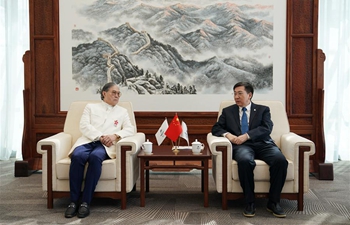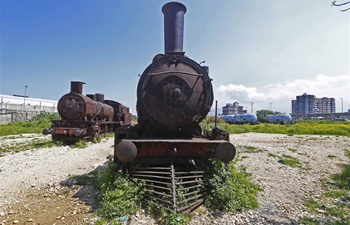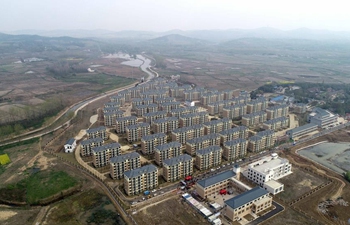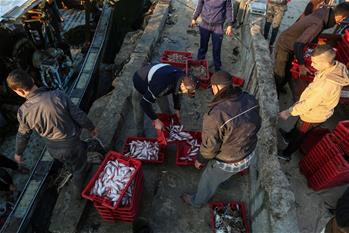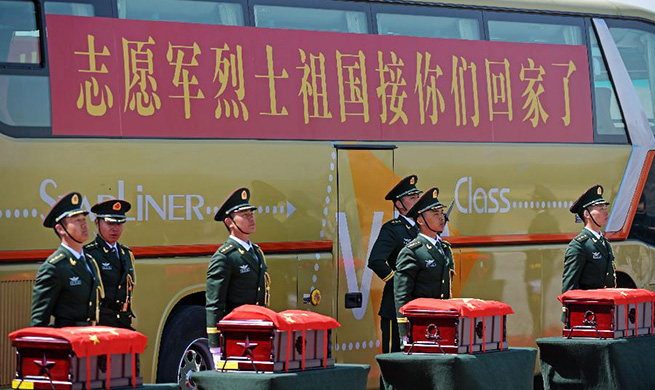CHONGQING, April 4 (Xinhua) -- Two years ago, Liu Xiaomin quit her job in Russia and returned to her hometown in Chongqing to sell Russian commodities in the mountainous municipality in southwest China.
"People were a little confused about my choice because they thought it would be difficult to do such cross-border business considering the slow logistics," Liu says.
Chongqing is a city located in China's western inland and is neighbor to China's vast western areas, which account for about 70 percent of the country's land and produce about one-fifth of China's GDP.
The city is also connected to the eastern seaboard thanks to the Yangtze, China's longest river, making it a transfer hub for commodities from the western areas to be sold across the world and for goods from around the globe to reach China's far west.
But the long shipping distance on the Yangtze waterway was always a headache for business people like Liu. More than 2,000 km of distance from Chongqing to the eastern areas meant two or even three months of transportation. Commodities from southeast Asia, such as fruits, simply became rotten before they reached the western areas.
All was set to change.
Easier logistics is making transportation much better these days thanks to the rising number of China-Europe freight trains. The first such train was launched between Chongqing and Germany's Duisburg. Such trains helped slash traveling time by two-thirds compared with water transport and are much cheaper than transporting by air.
According to official figures, by March 25 this year, a total of 3,322 trains commuted between Chongqing and Europe. The number has been rising in recent years.
"Now we send out seven China-Europe trains each day," said Zhang Xin, head of a major train station in Chongqing's Tuanjiecun Village. Chongqing's first China-Europe freight train started from the station in 2011.
That is perhaps why people like Liu Xiaomin are coming back to do cross-border business, by riding on the success of the easier logistics.
Liu is currently selling Russian honey, chocolate and waffles in a bonded market in Chongqing. The market plays home to many stores selling a variety of international products, all transported via the trains from around the world.
According to Liu, business there is "quite good."
It was hardly possible to do business this way in the past, Liu says. "But the easier logistics allows me to tap the huge market potential in the western inland."
Currently, the logistics network has connected Chongqing with 155 ports in 71 countries and regions, allowing businesses like Liu's to reach more customers.
"I am much busier than I used to be," Liu says. "But I am quite happy and excited about the future."




